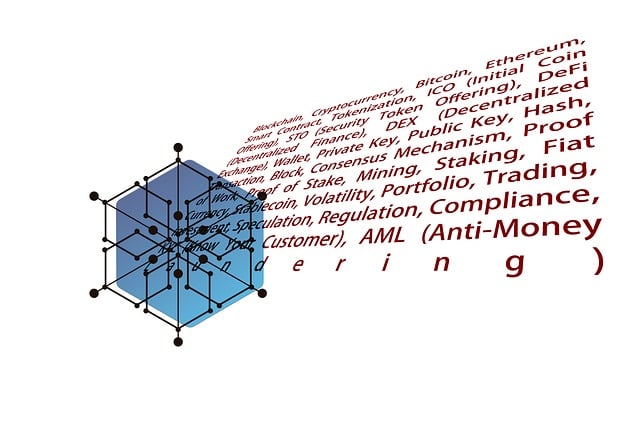Penalties for missed deadlines can be steep and vary based on industry regulations. Proactive manage…….
Category: Late registration penalties
Late Registration Penalties: A Comprehensive Analysis
Introduction
Late registration penalties are financial charges imposed on individuals or entities that fail to register a business, file taxes, or comply with regulatory requirements within the stipulated timeframe. These penalties serve as a deterrent against non-compliance and aim to ensure timely adherence to legal obligations. This article delves into the intricacies of late registration penalties, their significance, and the broader implications they have on various sectors and economies globally. Readers will gain a deep understanding of how these penalties are structured, their impact, and the strategies to effectively manage them.
Understanding Late Registration Penalties
Late registration penalties are not arbitrary fines; they are calculated based on several factors, including the nature of the offense, the duration of the delay, and the potential harm caused by the untimely registration. Historically, these penalties have been a part of regulatory frameworks, serving as a tool to maintain order and fairness in commerce, taxation, and other legal processes. They play a crucial role in safeguarding public interest, preventing fraud, and ensuring accurate record-keeping.
Global Impact and Trends
The impact of late registration penalties is not confined to any single region; it is a global phenomenon with varying degrees of severity and enforcement mechanisms across different countries. Key trends indicate an increase in the stringency of penalties, driven by the need for better compliance in a complex and interconnected global economy. In some regions, the trend reflects a shift towards more lenient policies aimed at encouraging new businesses, while others maintain strict penalties to combat corruption and tax evasion.
Economic Considerations
From an economic perspective, late registration penalties are integral to maintaining market integrity and stability. They influence investment patterns by creating an environment of predictability and accountability. The penalties can affect both micro and macroeconomic indicators, including GDP growth, inflation rates, and the overall level of economic activity. Countries with robust systems for enforcing late registration penalties often attract more foreign direct investment due to their perceived lower risk of malfeasance.
Technological Advancements
Technological advancements have significantly impacted the administration and enforcement of late registration penalties. Automated systems now streamline the registration process, making it easier for compliant entities while also facilitating the identification of late registrations. In the future, blockchain and artificial intelligence could further enhance the accuracy and efficiency of these systems, reducing the potential for errors and fraud.
Policy and Regulation
The legislative framework governing late registration penalties varies by jurisdiction. International bodies like the World Bank and regional organizations have developed guidelines to harmonize policies and ensure consistency across borders. These regulations are subject to regular review and updates to adapt to changing economic landscapes and technological advancements. The effectiveness of these policies is often evaluated based on their deterrent effect and the level of compliance achieved.
Challenges and Criticisms
Late registration penalties face several challenges, including criticisms over their fairness and potential impact on small businesses. These concerns prompt the need for balanced regulatory frameworks that protect public interests while not unduly burdening legitimate entities. Strategies to overcome these issues include creating clear and accessible guidelines, offering grace periods for first-time offenders, and providing support for small businesses to navigate compliance requirements effectively.
Case Studies
Several case studies highlight the successful implementation of late registration penalties. For instance, Country A saw a significant increase in timely business registrations after introducing a tiered penalty system. Country B successfully curbed tax evasion by imposing substantial penalties for late tax filings, which led to an influx of voluntary compliance and additional revenue. These examples underscore the effectiveness of well-designed penalty systems.
Future Prospects
The future of late registration penalties is likely to involve more sophisticated technology and a greater emphasis on international cooperation. Emerging trends suggest a move towards personalized penalty structures that take into account individual circumstances. Strategic considerations will focus on balancing the need for compliance with the promotion of economic growth, particularly among small and medium-sized enterprises.
Conclusion
Late registration penalties are a critical component of regulatory systems worldwide. They serve as a mechanism to ensure timely compliance, protect the integrity of markets, and foster economic stability. This article has explored the multifaceted aspects of late registration penalties, from their historical context to their future prospects. As economies evolve, so too must the approaches to enforcing these penalties, ensuring they remain effective and fair in a dynamic global environment.
FAQ Section
-
What are late registration penalties?
Late registration penalties are fines imposed on individuals or entities that fail to register with the appropriate authorities within the prescribed timeframe. -
Why are late registration penalties important?
They are important for maintaining public order, ensuring fair competition in the market, and safeguarding the integrity of financial systems. -
How do late registration penalties vary across different countries?
The severity and enforcement mechanisms of late registration penalties can differ significantly from one country to another, based on local laws, economic conditions, and regulatory priorities. -
Can late registration penalties impact small businesses?
Yes, they can, especially if the penalties are not proportionate to the size and capacity of the business. However, well-designed systems consider such factors to ensure fairness. -
How can technology influence late registration penalties?
Technological advancements can streamline the registration process, reduce errors and fraud, and facilitate more accurate enforcement of penalties. Future innovations may lead to personalized penalty structures based on individual or business circumstances.
Missed Deadlines Cost You: Strategize to Avoid Late Fees
Missed deadlines incur significant financial penalties, leading to a cycle of increasing obligations…….
Avoid Late Fees: Conquer Procrastination, Stay Compliant
Missed registration deadlines have significant consequences, disrupting opportunities and increasing…….
Missed Registration Deadlines: Navigating Consequences and Strategies
Missed registration deadlines at educational institutions lead to financial charges, restricted acce…….
Missed Deadlines: Costs, Compliance & Strategies for On-Time Success
Missed deadlines incur substantial penalties, impacting individuals and organizations. Increasing fe…….
Mastering Late Registration: Strategies for Timely Compliance and Avoidance
Late registration penalties can significantly impact individuals' access to educational opportu…….
Mastering Deadlines: Avoid Late Fees, Seize Opportunities
Missing deadlines can lead to significant financial penalties, hinder career advancement, and cause…….
Avoiding Late Fees: Strict Deadlines, Smart Planning
Missed deadlines can lead to substantial penalties, so understanding organizational rules, staying i…….
Missed Registration Deadlines: Costs, Strategies & Timely Solutions
Missed registration deadlines can have severe consequences for students, including financial strain…….
Avoiding Late Fees: Navigating Strict Policies for Better Planning
Increasing administrative penalties have prompted organizations to shorten grace periods and enforce…….









